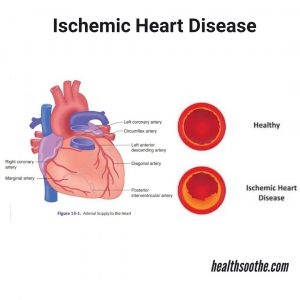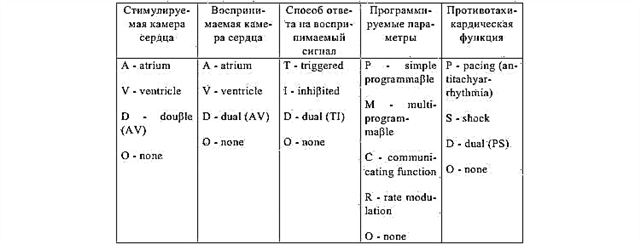 Allergic otitis media is an inflammatory process of an allergic nature that occurs in the middle or outer ear. The disease develops as an inadequate immune response of the body to the action of allergens, as a result of which edema and inflammation occur in the affected tissues. Allergies are more susceptible to preschool children and adults prone to allergic reactions. If the diagnosis is correct and an adequate course of therapy is prescribed, the symptoms of ENT disease can be stopped within a week.
Allergic otitis media is an inflammatory process of an allergic nature that occurs in the middle or outer ear. The disease develops as an inadequate immune response of the body to the action of allergens, as a result of which edema and inflammation occur in the affected tissues. Allergies are more susceptible to preschool children and adults prone to allergic reactions. If the diagnosis is correct and an adequate course of therapy is prescribed, the symptoms of ENT disease can be stopped within a week.
Causes
With the development of allergic otitis media, the tissues of the middle ear are mainly affected, in particular the tympanic membrane and the auditory tube. Swelling and inflammation can lead to problems with the drainage of the tympanic cavity, as a result of which fluid (effusion) begins to collect in it. The following factors contribute to the onset of pathology:
- craniofacial abnormalities;
- genetic predisposition;
- autoimmune disorders;
- decreased reactivity of immunity;
- the presence of Down syndrome.
Among the diseases that provoke the development of otitis media include rhinitis, bronchial asthma, urticaria.
With the accumulation of fluid in the tympanic cavity, the risk of a bacterial infection increases significantly. If the symptoms of an allergic disease are poorly expressed, then when a bacterial flora occurs in the ear, severe acute pains, "lumbago" in the ears, congestion and purulent discharge appear.
Allergic otitis media in children
Children are more susceptible to allergic diseases, which is due to the hypersensitivity of the skin to external stimuli. In turn, sensitization often occurs against the background of failures in the immune system, which does not always respond adequately to the penetration of allergens into the body. In such cases, the aggressiveness of antibodies is expressed not only in relation to allergic agents, but also to skin microstructures, which leads to the occurrence of inflammatory processes.
The development of pathology in children is facilitated by:
- feeding with artificial mixtures;
 an allergic reaction to certain foods;
an allergic reaction to certain foods;- unbalanced diet;
- frequent infectious diseases;
- serum sickness.
Important! Untimely treatment of the disease in children leads to the development of autophony, i.e. an incurable auditory defect, which consists in hypertrophied perception of one's own voice.
Otitis media of allergic etiology is often asymptomatic and practically does not bother the child. The first signs of the development of the disease are easier to notice not for the children themselves, but for their parents. The following symptoms may indicate the development of pathology:
- developmental delay;
- tendency to loudness;
- decline in school performance;
- distraction and inattention.
The most common allergen causing ear inflammation in children is cigarette smoke. To reduce the likelihood of your child developing the disease, try never to smoke in his presence.
Symptomatic picture
In the case of the development of allergic otitis media in adults, the typical symptomatic signs of acute inflammation are practically absent. The eardrum does not change its color, but it thickens somewhat due to tissue edema and fluid accumulation in the tympanic cavity. Body temperature remains normal or subfebrile, general signs of malaise do not bother.
The key manifestations of the disease will be:
- hearing loss;
- discharge from the ear canal;
- eczematous rash in the outer ear;
- congestion in the ears;
- itching and burning inside the tympanic cavity.
 In the case of a bacterial infection, the clinical picture may be replenished with additional signs. In the ear canal, traces of purulent discharge appear, the body temperature rises to 39 degrees, there are frequent cases of exacerbation of pain in the ear.
In the case of a bacterial infection, the clinical picture may be replenished with additional signs. In the ear canal, traces of purulent discharge appear, the body temperature rises to 39 degrees, there are frequent cases of exacerbation of pain in the ear.
Important! With hearing loss and congestion in the ears, you should be examined by an otolaryngologist. Such symptoms may indicate the development of allergic reactions in the middle ear.
Diagnostics
For an accurate diagnosis and determination of the type of otitis media, the doctor can carry out paracentesis of the membrane, i.e. puncture it with a special needle. With the development of an allergic disease, viscous mucus, which contains a large number of eosinophils, will begin to evacuate from the tympanic cavity. Subsequently, the same fluid is found in the compartments of the mastoid process.
With the addition of a bacterial infection, polymicrobiota begin to develop in the mucous masses, as a result of which the contents in the tympanic cavity become mucopurulent. To verify the bacterial nature of the inflammation, the doctor may prescribe a blood test to anticipate the amount of immunoglobulin E and eosinophils.
Allergic ENT disease is difficult to treat if diagnosed incorrectly. To relieve the symptoms of the disease, it is first of all necessary to carry out a general desensitization of the body.
Treatment activities
Otitis media should begin with the elimination of allergens, i.e. exclusion of irritants that provoke inflammatory processes in the body. For this, concomitant infectious diseases are treated, such as vasomotor rhinitis, urticaria, diathesis, bronchial asthma, etc. At the next stage of treatment, the following types of medications can be prescribed for children and adults:
- antiallergic ("Erius", "Zyrtec") - eliminate tissue edema, which contributes to the normalization of drainage in the tympanic cavity;

- antibiotics ("Erythromycin", "Amoxicillin") - inhibit the development of bacteria, thereby eliminating inflammation and severe pain in the ears;
- anti-inflammatory drops (Normax, Otipax) - relieve inflammation, thereby reducing the edema of the tympanic membrane and normalizing the process of evacuating the effusion from the middle ear cavity;
- immunostimulants ("Imunofan", "Galavit") - increase the reactivity of the immune system, which helps to eliminate pathogens inside the ear canal and accelerate tissue regeneration processes.
Important! Antibiotic therapy should be carried out under the supervision of a specialist. An overdose of drugs is fraught with a decrease in immunity and a violation of the microflora in the ear cavity.

 an allergic reaction to certain foods;
an allergic reaction to certain foods;


